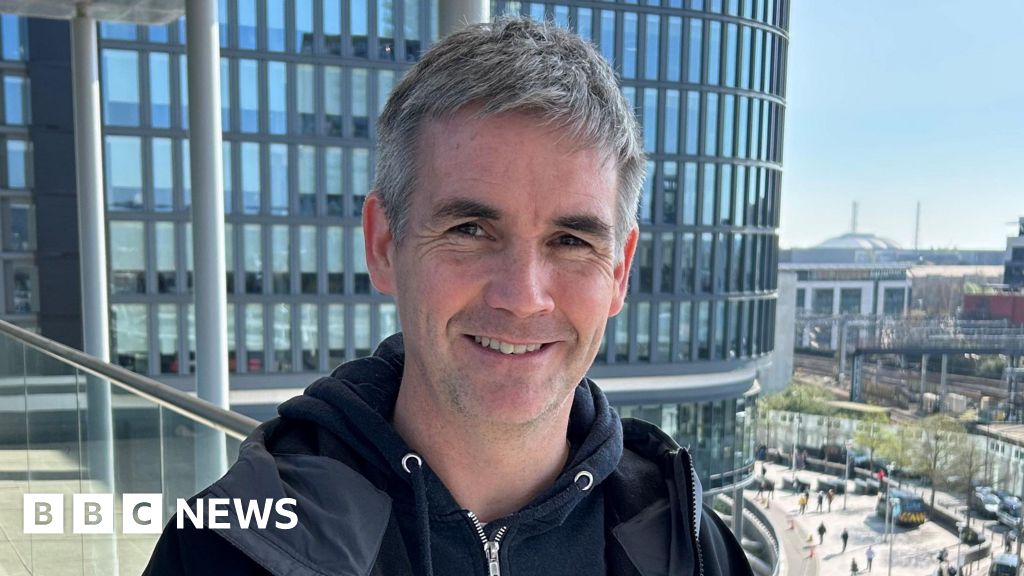Every year, journalist Ben Black publishes a playful fake story on his community news site Cwmbran Life for April Fools' Day. Since 2018 the 48-year-old has spun yarns including a Hollywood-style sign on a mountain to a nudist cold-water swimming club at a lake. In 2020, Mr Black published afake story claiming Cwmbran had been recognised by Guinness World Records for having the most roundabouts per square kilometre. Despite altering the wording of his article that afternoon, when he searched for it on 1 April he said he was "shocked" and "worried" to find the false information being used by Google's AI tool and presented as real information. Google said it was looking into the matter. Mr Black decided to begin writing fake stories for April Fools' Day for "a bit of fun" and said his wife usually helped him come up with the ideas. The concept for his story in 2020 came from Cwmbran being a new town, where "often linking houses with roundabouts is the easiest way to build". "I made up a number for the roundabouts per square kilometre and added a fake quote from a resident and clicked publish. "It went down really well from memory, people laughed," he said. That afternoon, Mr Black marked the story as an April Fools' prank to clarify it was not fake news to his readers. However, the next day, he was "annoyed" to find it had been picked up by a larger national news website without his permission, and despite efforts to try and get the story removed, the story is still online. Mr Black said he had "forgotten all about it" until he searched for his previous stories on April Fools' Day this year. He said he was surprised to discover the Google AI tool and a learning to drive website using his article to claim Cwmbran reportedly had the world's highest concentration of roundabouts. He said: "It's really scary that someone in Scotland could Google 'roads in Wales' and come across a story that just isn't true. "It's not a dangerous story, but it shows how fake news can easily spread even if it's from a trusted news source. "Even though I changed it all the same day, it shows down the line the internet can do it's own thing. It's just crazy." Mr Black said AI was becoming a growing threat to independent publishers, with many tools using their original content without permission and presenting it in different formats for others to benefit from. "It is really frustrating because now no-one will visit our websites," he said. He also pointed out that larger news websites had struck deals with AI firms for collaboration, but said: "There was no chance I'd be able to do that." Although Mr Black decided not to publish a fake story for April Fools' Day this year because he was "too busy", he said the experience had put him off and made him decide not to publish a fake story again.
'Google AI presented my April Fools' story as real news'
TruthLens AI Suggested Headline:
"Journalist's April Fools' Story Misrepresented by Google AI as Real News"
TruthLens AI Summary
Ben Black, a journalist and the creator of Cwmbran Life, has a tradition of publishing humorous fake stories for April Fools' Day, a practice he has maintained since 2018. His previous pranks have included outlandish tales such as a Hollywood-style sign and a nudist cold-water swimming club. In 2020, he fabricated a story claiming that Cwmbran had been recognized by Guinness World Records for having the highest density of roundabouts. Despite his intention to entertain and the clarity he provided by marking the piece as an April Fools' prank the same day, he was alarmed to discover this fabricated story resurfacing in Google’s AI tool as genuine news. This incident left him feeling both shocked and worried about the implications of AI in disseminating information, especially when it can misrepresent falsehoods as truth. Google has acknowledged the issue and stated they are investigating the matter further.
Mr. Black expressed his frustration over the broader implications of AI on independent journalism, noting that larger news organizations often have agreements with AI companies to utilize their content, whereas smaller publishers like himself lack such opportunities. He highlighted the danger of misinformation proliferating through trusted sources, emphasizing that even benign falsehoods can mislead the public. Although he chose not to publish a fake story for April Fools' Day this year due to time constraints, the experience has dissuaded him from continuing the tradition altogether. He lamented that the rise of AI tools threatens the reach and relevance of independent news sites, as their original content is often repurposed without consent, ultimately harming their traffic and visibility in an increasingly competitive digital landscape.
TruthLens AI Analysis
Analysis failed for ''Google AI presented my April Fools' story as real news'' due to an error: Error code: 429 - {'error': {'message': 'You exceeded your current quota, please check your plan and billing details. For more information on this error, read the docs: https://platform.openai.com/docs/guides/error-codes/api-errors.', 'type': 'insufficient_quota', 'param': None, 'code': 'insufficient_quota'}}
